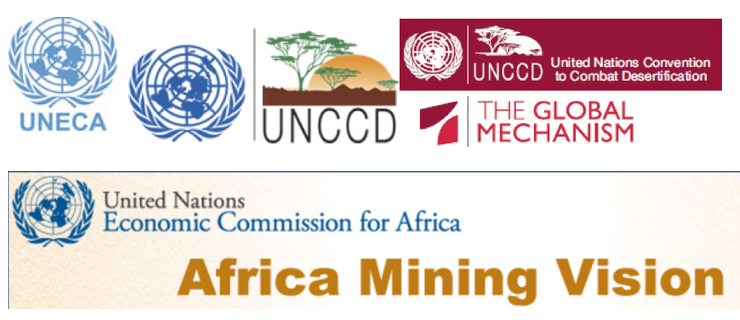An article titled ‘Involving the Mining Sector in Achieving Land Degradation Neutrality,' which is based on a review commissioned by the Global Mechanism (GM) of the UN Convention to Combat Desertification (UNCCD), argues that developing a certification system for land degradation neutrality (LDN) could stimulate interest in economic sectors such as mining “that have otherwise not yet centrally engaged with sustainable land management (SLM) issues at a policy level, while also helping businesses to comply with new legislation on LDN.” LDN is one of the targets under Sustainable Development Goal (SDG) 15 (Life on land).

September 2016: An article titled ‘Involving the Mining Sector in Achieving Land Degradation Neutrality,’ which is based on a review commissioned by the Global Mechanism (GM) of the UN Convention to Combat Desertification (UNCCD), argues that developing a certification system for land degradation neutrality (LDN) could stimulate interest in economic sectors such as mining “that have otherwise not yet centrally engaged with sustainable land management (SLM) issues at a policy level, while also helping businesses to comply with new legislation on LDN.” Target 15.3 under Sustainable Development Goal (SDG) 15 (Life on land) calls for global efforts to achieve LDN.
Describing the study’s main findings, the article notes that mining company representatives as well as their stakeholders “pointed to case-based examples” where specific SLM activities were perceived to have had a positive impact on corporate financial performance. This, suggest the authors, highlights the “potentially vast, largely untapped opportunity” for engaging mining companies in socially and environmentally responsible operations.
With no legally binding regulatory frameworks in place, however, the article emphasizes that the most feasible route is to develop a strong business case that can encourage mining companies to gradually neutralize their “land footprint” in all stages of mineral exploration and development. The authors also note that this approach could be further reinforced by “market-driven solutions” such as land stewardship certifications and innovative financial solutions such as the GM-coordinated LDN Fund.
In addition, several stakeholder consultations supported by the African Minerals Development Centre of the UN Economic Commission for Africa (ECA), and other partners took place during July and August 2016 to discuss how to align national mineral governance frameworks to the African Mining Vision (AMV).
Formally adopted by African heads of state in 2009, the AMV aims to provide a roadmap to the transparent, equitable and optimal exploitation of mineral resources to underpin broad-based sustainable growth and socio-economic development in Africa.
A meeting of geological experts, held from 23-26 August 2013 in Cape Town, South Africa, discussed the implementation of the African Geological Mineral Information System (GMIS) strategy. Among other objectives, the strategy aims to: introduce AMV-compliant initiatives that foster the development of spatial data infrastructure among African countries as a tool for GMIS management; provide open access and facilitate data sharing and distribution across various levels of users, including private sector and government agencies; increase regional and national mapping and exploration activities; and support the development of continent-wide mineral inventory.
The consultation on Malawi’s mineral governance framework, which took place from 10-12 August 2016 in Addis Ababa, Ethiopia, reviewed the country’s 1981 Mines and Minerals Act and discussed how to align the country’s new Mining Regulations and Petroleum Policy with the AMV.
Fatima Haram Acyl, Commissioner for the Department of Trade and Industry at the African Union Commission (AUC) noted that Malawi’s efforts are part of a “historic paradigm shift,” where African states are “going beyond the current understanding of the value of minerals by looking into fiscal, downstream, upstream, knowledge and spatial linkages” in their mineral sector management frameworks.
Held from 26-28 July 2016 in Freetown, Sierra Leone, the Sierra Leone workshop focused on facilitating informed input by multiple stakeholders to the preparation of the country’s Core Minerals Policy (CMP). The workshop initiated a database of participants who are able to serve as resource persons for sensitization on the AMV in their communities, as part of the multi-stakeholder consultative meetings on the CMP across Sierra Leone. [Involving the Mining Sector in Achieving Land Degradation Neutrality] [UNCCD Newsletter] ECA Press Release on African GMIS Strategy] [ECA Press Release on Sierra Leone AMV Workshop] [ECA Press Release on Malawi AMV Workshop] [African Minerals Development Centre website] [IISD RS Story on Efforts by African Countries to Optimize Value from Extractive Sector]